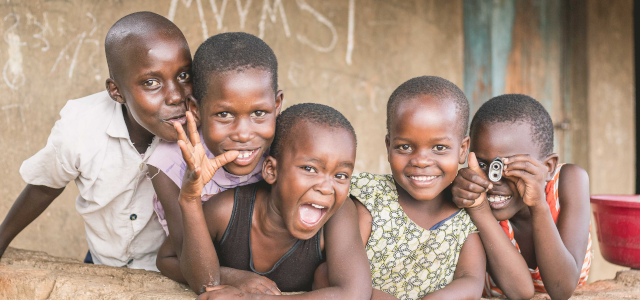Reimagining WASH: Water Security for All was launched by UNICEF on 18 March, as a strategy to ensure that all children have access to safe and affordable water supply and live-in water secure communities by 2030. Reimagining WASH has four main focus areas:
- Safe and affordable drinking water services
- Climate-resilient WASH services and communities
- Prevention of water scarcity crises through early action
- Water cooperation for peace and stability.
“To avert the water crisis, we must scale up water infrastructure to reach everyone including those in the most vulnerable communities and we need to do it in a way that is most sustainable and resilient to climate change,” said Henrietta H. Fore, UNICEF Executive Director.
GWPSA Executive Secretary and GWP’s Head of Climate Resilience, Alex Simalabwi, addressed UNICEF and partners at a pre-launch event, saying that Reimagining WASH comes at an opportune time when the world is grappling with the already long-existing water crisis, increasing climate change, and the COVID-19 pandemic.
“To avert these challenges, we need to use tools that are tried and tested,” said Simalabwi.
“The WASH Climate Resilient Development Strategic Framework responds to the lack of adequate climate-proof integrated tools that link Integrated Water Resources Management and WASH,” he said.
WASH professionals in 79 countries have been trained, with 49 countries already implementing the framework. In 2020, GWP, UNICEF, and Cap-Net collaborated on an online course that covers all areas of the Framework for WASH Climate Resilience.
The Framework emphasises climate-resilient development, including strengthening the resilience of WASH systems and investments to manage current climate variability, as well as long-term changes in climate. Additional tools have been developed to support the implementation of the framework, mobilising finance for climate resilient WASH projects, and monitoring and advancing the WASH climate resilience agenda.
Simalabwi said that the Framework supports countries to plan, finance, and implement climate-resilient frameworks and strategies, and will therefore also be a tool in the implementation of the Continental Africa Water Investment Programme (AIP).
The AIP which will improve the investment outlook for water and sanitation investments on the continent, was formally adopted by the Assembly of the African Union Heads of State during its 34th Ordinary Session on 7th February in Addis Ababa, Ethiopia, as part of Programme for Infrastructure Development in Africa Priority Action Plan. The AIP will mobilise USD30bn in climate resilient water investments by 2030 in Africa.
The AIP is aligned with the goals of Reimagine Wash, as it contributes towards continental efforts on universal access to safe water, sanitation hygiene and integration of water security in COVID-19 economic recovery plans.
Photo credit: Toby Wong via Unsplash
